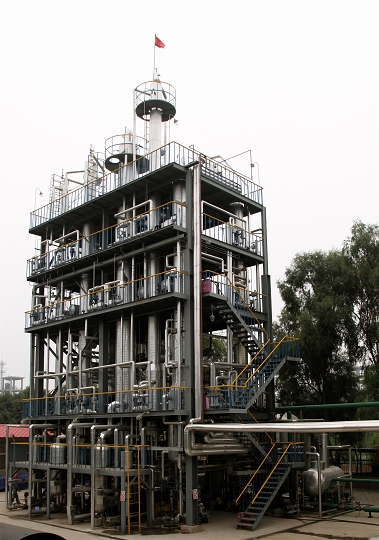
Recently, a demonstration plant for synthesis of dimethyl carbonate (DMC) from urea and methanol was constructed and operated smoothly in ICC. This novel route will pave the way for green synthesis of DMC as well as urea utilization or even CO2 utilization.
As an environmentally benign building block, DMC has a versatile chemical property and has been used mainly to be a methylating and methoxycarbonylating agent as a safe substitute for dimethyl sulfate or methyl halides which were toxic or corrosive, it can also be used as solvent or fuel additive due to its high octane number and good volatile. At present, DMC was produced industrially by phosgene or by liquid-phase or gas-phase oxidative carbonylation of methanol, the shortcomings of these processes were low production rate, high cost of the separation of products and reactants, high recycles requirements and the need for corrosion resistant reactor and process lines. In another route named transesterification, PC was firstly produced by cycloaddition of CO2 and propylene oxide, followed by further reaction of PC and methanol to form dimethyl carbonate and propylene glycol. However, the feed propylene oxide is explosive and the reaction rate of propylene oxides with carbon dioxide is slow and requires high pressure. Thus, the synthesis of DMC from urea and methanol was proposed by ICC which is considered as a promising process for the utilization of CO2.
In ICC, supported heterogeneous catalyst with good performance for the reaction of methanol and urea was design and prepared after systematic investigation on the reaction. After a detailed study on process and engineering simulation, a demostration plant was constructed and operated smoothly. The feasibility study of the process showed that the price of DMC is very competitive.
The project was supported by the “National Key Technology R&D Program” as well as “Knowledge Innovation Program of Chinese Academy of Sciences”.
|
